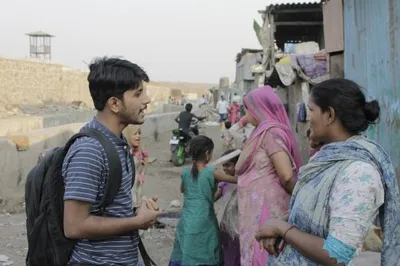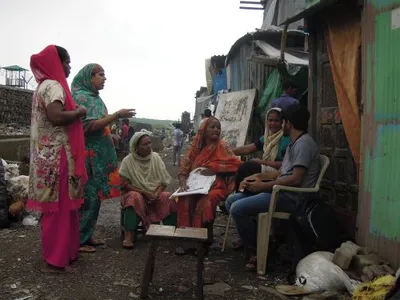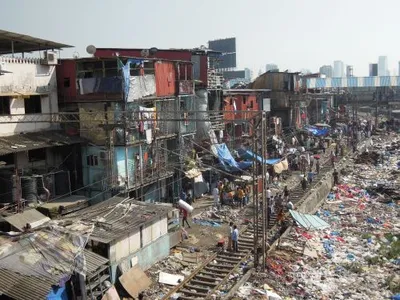Marginality in urban India
ZEF doctoral student Amit Kumar tells about his field research in Mumbai
For your doctoral research on “Marginality at the interface of contemporary development processes in urban India” you have been conducting field research in the slums of Mumbai. Why did you choose this research topic?
In 2004/2005 a massive demolition drive was carried out to shape Mumbai as a “world-class city”. The massive numbers of slum dwellers then resisted the making of the city as world-class by pushing its poor out. This movement, to protect the rights of the urban poor living in precarious conditions, was then carried under the banner of Ghar Banao Ghar Bachao Aandolan (GBGBA) led by Right Livelihood Laureate Medha Patkar. They could successfully resist the eviction of people living in slums and reorganize them on the same land through negotiations with the Municipal Corporation of Greater Mumbai. This way I came across the issue of the eviction of slum dwellers from Mumbai and their resistance, to be in the city of Mumbai. I was then appointed as a student social worker with Municipal Corporation of Greater Mumbai in 2014-15. There I had to work with the issues in slums of T ward of Mumbai. The multiple problems in these slums and varied ways to address them by different departments of MCGM gathered my attention. And while conducting the Masters research, the complexity to work with slums got clearer.

What were your main research objectives?
The main research objectives are: to describe the temporality of demolition and reassembling of actors around it, to trace how slum-dwellers, mobilize to resist their eviction and negotiate to be in the city of Mumbai; and to study the associations, they form to be in the city of Mumbai being at the anti-footings with the state.
You are also an RLC student. How did the cooperation with the RLC take shape “on the ground”? The Right Livelihood College functions as a space for interaction between Right Livelihood Laureates and students. In the case of Mumbai, activists and students have always been close to each other when it comes to stand against the eviction of urban poor. Some of them are students turned activists and some are activists then turned students. So this cooperation has been old but limited when it comes to the demolition of slums.

How did you set up and organize your research?
With the collaboration with RLA laureate I could explore slums in the different parts of Mumbai which were demolished in 2005. Then I could arrange implementing a participatory tool in Sanjay Nagar in Mumbai, this is east ward of Mumbai. This helped me in rapport building process.How did people respond to a young researcher conducting research on their (daily) lives?The people are used to young researchers and it is not so much the age of the researcher that people respond to as much as the kinds of networks the researcher is immersed in. That is to say, the researcher’s caste and class or his place in the extant hierarchy. Needless to say, I am easily recognizable by them as someone who doesn’t usually belong to their space. My going there, with no obvious mandate against them, already makes them well disposed towards me as they think I am there to help them; though, I know that nothing could be further from the truth. The people responded to me exactly like a group of desperate people would, when they see a glimmer of hope, no matter how young or how small.
What experience impressed you most during your stay?
I was impressed by the depth, acuteness and clarity of thought I encountered in the slums. One goes there with the impression, a university education in hand, that one knows more than them. But then they show one, just how little one actually knows in comparison to them. I was impressed by their knowledge on research and its tools. They were not only replying but also asking me of what tools I am using to answer which research question. Sometimes they would give me suggestions on what tools I can use and also helped me conducting them too.
What are the main conclusions of your research work so far?
This research will present how the demolition as an event of high intensity flows into several directions to have new set of young people becoming expertise in planning, activists and non-governmental organizations workers. The question of citizenship for individuals living in slums then breaks into the question of rights for education, livelihood, water etc. and the new machines produced through the protest of social worker, experts and activists are then attached to it. This way the city based movements not only pushes the agenda against eviction of its poor but open new associations for them to be in the city.


